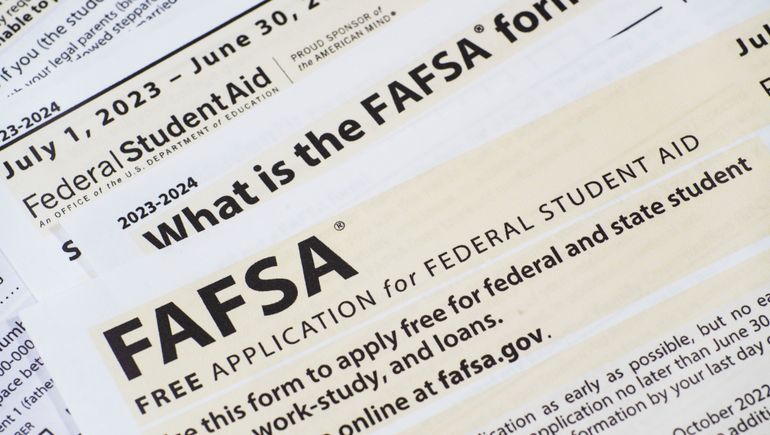Higher education has taken center stage for policymakers in 2024.
The Biden administration has been overhauling higher education regulations, from placing greater restrictions on career education programs to attempting once again to clear debts for certain student loan borrowers.
On top of that, federal lawmakers have recently proposed their own legislation to reshape higher education policy, including a new bipartisan bill that would expand Pell Grants to programs as short as eight weeks. And the presidential election is likely to sharpen focus on higher education policies.
“Education does trend in polls as one of the top topics for voters,” said Barbara Mistick, president of the National Association of Independent Colleges and Universities, to a gathering of private nonprofit college leaders. “You’re going to hear a lot of noise around K-12, but you’re also going to hear a lot of noise around higher education.”
Below, we’re rounding up several new policies highlighted during the presentation, which was part of the Council of Independent Colleges’ annual Presidents Institute, which brings together hundreds of higher education leaders.
New FAFSA rollout
The U.S. Department of Education soft-launched the new Free Application for Federal Student Aid on Dec. 30 — just two days before the agency’s deadline — by making it available during limited windows.
The revamped FAFSA simplifies the notoriously difficult form and reduces the maximum number of questions students and their families must answer from over 100 to just a few dozen. But the new form became available about three months later than usual, giving colleges much less time to review student applications and offer them financial aid packages.
“For each of you, the challenge is going to be you’re not going to have this information early enough,” Mistick said. “Some of you are going to have to use estimator tools to make the kind of decisions that you want to make. This is really unfortunate.”
Moreover, the rollout has been hampered by technical difficulties, and families say they have had trouble submitting the form during its initial release.
Those issues may be improving. The Education Department announced Monday that the revamped form is now available 24/7, except for routine maintenance.
However, the agency recently told colleges that they wouldn’t receive any applicant data until the end of this month, giving them an even shorter window than usual to make aid offers.
These issues will likely irritate parents.
“The best thing to do is to urge people to be patient, to tell them that you’re going to be flexible, that you’re going to get back to them as soon as you possibly can,” Mistick said. “I would fully expect that this is going to drift into the spring, and I know that’s going to be very frustrating for everybody.”
Overtime rule
The U.S. Department of Labor proposed a regulatory change last year that would increase the threshold for overtime eligibility from around $35,000 to roughly $55,000. The rule could impact many college staff positions, such as information technology and admissions workers, according to the American Council on Education.
The Labor Department plans to issue a final rule in April.
Colleges may have to comply with the new regulations within 60 days of their release, according to Mistick. And the final rule is projected to end up raising the threshold to over $60,000, based on the most recent wage data.
However, the regulation preserves an overtime eligibility exemption for workers whose primary responsibilities include teaching — meaning the changes won’t affect college instructors and some athletic coaches.
During the presentation, Council of Independent Colleges President Marjorie Hass urged college leaders to particularly consider how the rule will affect student life and admissions employees.
“This is going to be really impactful on budgets and on the way you staff complex weekend events in particular,” Hass said, citing commencement and homecoming as examples. “You may have to keep certain staff off campus during these really important events, which is tragic.”
Title IX regulations
The Education Department has pushed back two highly anticipated Title IX regulations to March.
One of the rules covers how colleges must investigate and punish sexual misconduct. The other would prevent colleges from blanket-banning transgender students from playing on sports teams aligned with their gender identities.
A March release could result in a timeline similar to the last time new Title IX regulations were released, in May 2020. When the Trump administration published those rules, they took effect only a few months later, in August.
“We’re likely to have just what we had the last round,” Hass said, noting that colleges spent the entire summer of 2020 working with attorneys to interpret the new rules before they took effect for the fall term.
